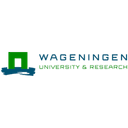This course is part of Food Security and Sustainability.
This introductory course examines the multifaceted aspects of food access and security across different societal levels. Students learn how various actors - from households to international organizations - influence food accessibility and decision-making. The course covers food manufacturing evolution, basic principles of food access, and actor choices at household, local, national, and international levels. Part of the XSeries programme Food Security and Sustainability, it provides essential insights for students, policy makers, and development practitioners working in food and nutrition sectors.
4.9
(7 ratings)
21,800 already enrolled
Instructors:
English
English
What you'll learn
Understand modern food manufacturing changes
Master basic principles of food access
Analyze actors choices in food accessibility
Evaluate dilemmas at multiple societal levels
Examine connections between food system actors
Skills you'll gain
This course includes:
PreRecorded video
Graded assignments, Exams
Access on Mobile, Tablet, Desktop
Limited Access access
Shareable certificate
Closed caption
Get a Completion Certificate
Share your certificate with prospective employers and your professional network on LinkedIn.
Created by
Provided by

Top companies offer this course to their employees
Top companies provide this course to enhance their employees' skills, ensuring they excel in handling complex projects and drive organizational success.





There are 6 modules in this course
This comprehensive course explores the complexities of food access and security across multiple levels of society. Students learn about the evolution of food manufacturing, principles of food access, and how different actors influence food availability. The curriculum covers household food allocation, local market dynamics, national food policies, and international trade rules. Special emphasis is placed on understanding the interconnections between various stakeholders and levels in the food system.
Setting the Scene
Module 1
Households Accessing and Allocating Food
Module 2
Traders Arranging Food Access in Local Markets
Module 3
National Policy Makers Governing Food Access
Module 4
Negotiators Setting International Trade Rules for Food Access
Module 5
Connecting the Ingredients
Module 6
Fee Structure
Individual course purchase is not available - to enroll in this course with a certificate, you need to purchase the complete Professional Certificate Course. For enrollment and detailed fee structure, visit the following: Food Security and Sustainability
Payment options
Financial Aid
Instructors

3 Courses
Leading Expert in Development Economics and Rural Livelihoods
Dr. Marrit van den Berg serves as Associate Professor at the Development Economics Group of Wageningen University & Research, where she specializes in agricultural economics and rural development in developing countries. After completing her studies in tropical land use and development economics, she earned her PhD from Wageningen University in 2001. Her research focuses on rural household livelihoods in developing countries, with particular emphasis on food and nutrition security, off-farm diversification, technology adoption, and microfinance. As project leader and senior researcher, she has conducted extensive field research across Latin America, Asia, and Africa, employing quantitative methods including econometric analysis, behavioral experiments, and randomized controlled trials. Her influential work includes groundbreaking research on household income strategies during natural disasters in Nicaragua, rural poverty dynamics in Kenya, and the effects of international migration on crop income in the Kyrgyz Republic. Through her teaching in the MOOC "Sustainable Food Security: Food Access" and the XSeries Programme in Food Security and Sustainability, she helps students understand complex development economics concepts while focusing on methods and techniques for field research. Her expertise spans multiple areas including impact assessment, program evaluation, and risk management, contributing significantly to our understanding of rural development and poverty alleviation strategies in developing countries.

3 Courses
Leading Expert in Food Policy and Governance
Dr. Jeroen Candel serves as Associate Professor at the Public Administration and Policy Group of Wageningen University & Research, where he specializes in food policy and governance. After completing his bachelor in Public Administration and master in Public Governance (cum laude) at Utrecht University, he earned his PhD in 2016 studying EU governance of food security. His research focuses on innovative forms of food policy, including urban food policy, national food strategies, and the EU's Farm-to-Fork Strategy. He has received multiple prestigious recognitions, including the Van Poelje Award for best PhD dissertation in public administration (2017), the Lasswell Prize for Best Article in Policy Sciences (2021), and most recently the WUR Excellent Education Award (2023). As a member of the Dutch Council on Animal Affairs and the supervisory board of the Transitiecoalitie Voedsel, he actively engages with policymakers and societal actors to improve food governance. His work spans food and nutrition security governance, agricultural policy, democratic innovation within food systems, and public policy theory. Through his teaching of courses on Food Politics and European Union governance, and his contributions to the MOOC "Sustainable Food Security: Food Access," he continues to shape understanding of food policy while providing concrete suggestions for improved food governance. His research particularly emphasizes the integration of policy sciences with food systems research, exploring how governments can steer food systems towards more sustainable, healthier, and equitable outcomes.
Testimonials
Testimonials and success stories are a testament to the quality of this program and its impact on your career and learning journey. Be the first to help others make an informed decision by sharing your review of the course.
Frequently asked questions
Below are some of the most commonly asked questions about this course. We aim to provide clear and concise answers to help you better understand the course content, structure, and any other relevant information. If you have any additional questions or if your question is not listed here, please don't hesitate to reach out to our support team for further assistance.



